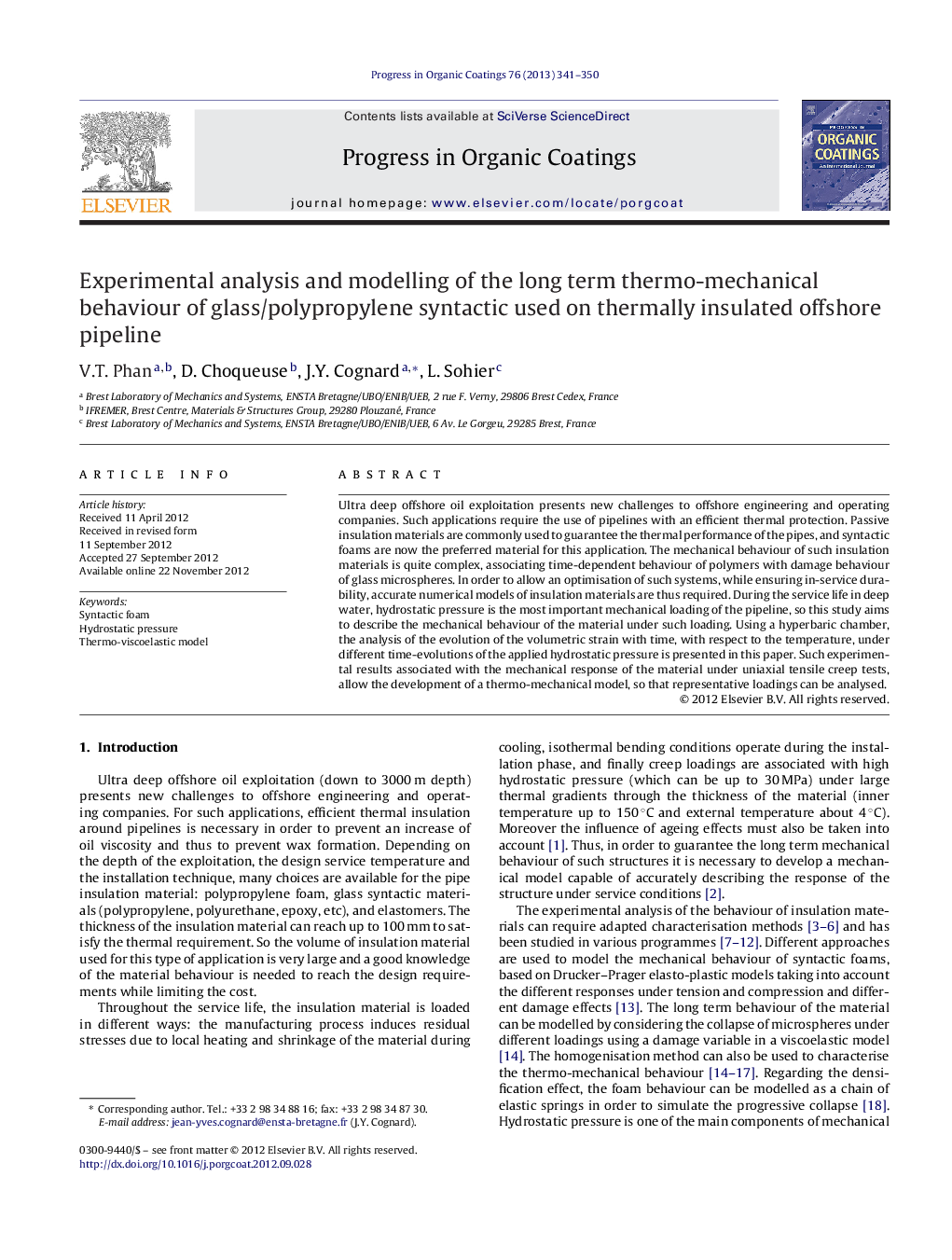| Article ID | Journal | Published Year | Pages | File Type |
|---|---|---|---|---|
| 693101 | Progress in Organic Coatings | 2013 | 10 Pages |
Ultra deep offshore oil exploitation presents new challenges to offshore engineering and operating companies. Such applications require the use of pipelines with an efficient thermal protection. Passive insulation materials are commonly used to guarantee the thermal performance of the pipes, and syntactic foams are now the preferred material for this application. The mechanical behaviour of such insulation materials is quite complex, associating time-dependent behaviour of polymers with damage behaviour of glass microspheres. In order to allow an optimisation of such systems, while ensuring in-service durability, accurate numerical models of insulation materials are thus required. During the service life in deep water, hydrostatic pressure is the most important mechanical loading of the pipeline, so this study aims to describe the mechanical behaviour of the material under such loading. Using a hyperbaric chamber, the analysis of the evolution of the volumetric strain with time, with respect to the temperature, under different time-evolutions of the applied hydrostatic pressure is presented in this paper. Such experimental results associated with the mechanical response of the material under uniaxial tensile creep tests, allow the development of a thermo-mechanical model, so that representative loadings can be analysed.
► Analysis of the influence of hydrostatic pressure on the syntactic foams. ► Specific tests in a hyperbaric chamber to analyse the volumetric deformation. ► Analysis of the behaviour of glass microspheres with respect to hydrostatic pressure. ► Modelling of the thermo-visco-elastic behaviour of the syntactic foam. ► The final aim of the work is to analyse the long-term behaviour of field joints.
